2014: Death of Charlotte Dawson
February 12, 2024
By AHNZ
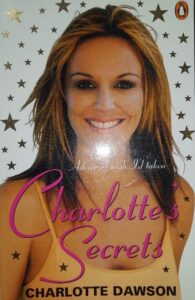
Charlotte Dawson was celebrity New Zealander who died aged 47 by committing suicide on 22 February, 2014. As with her very public life, the death resonated through the Kiwi psyche. It was a terrific flame out involving component parts of Social Media, celebrity, women aging, bullying, and national pride.
I first met Dawson when she anchored the TVNZ show How’s Life? in 2002. Complete with theme tune by Hammond Gamble, it was a panel show that “solves your problems so you can get on with enjoying your life.” In the image below Dawson has members of her regular panel including Paul Henry, Robyn Malcolm, Paul Henry, Suzanne Paul, Christine Rankin. He was also joined by Marcus Lush and Kerre Woodham. It was their era.
In an archived clip one of the first things Dawson says is “I wouldn’t write a book about my life because there’s so much life to happen…we try and encourage that for everyone don’t we?” The following year Dawson wrote Charlotte’s Secret: advice I wish I’d taken and in 2012 Air kiss & tell : memoirs of a blow-up doll. Ref. NZ on Screen
Fast-forward 2014 and Dawson evidently didn’t have the support of her celebrity friends or the production crew whose premise was the ability to solve life’s problems. No family, no husband, no kids, Dawson’s death was only noticed and the alarm raised because she had been absent from both Twitter and Instagram for almost a day. This goes to show that the self-identifying “blow-up doll” and her TV friendships were theater put on to entertain and sell advertising rather than authentic and genuine when it counted.
Fast-forward even further to 19 February, 2019, in what was probably the exact same TVNZ studio and we would find Hayley Holt interviewing Jordan Peterson. Holt, the latest in a very long line of “bubble-headed bleach blondes” was channeling Charlotte’s ghost when she said…
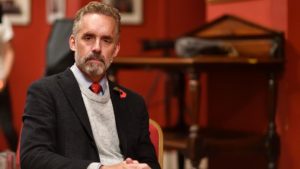 “I’m 38, I feel like I’ve got through my early thirties almost luckily when I look at what my friends have to deal with, with their children, I almost feel a little bit blessed, what do you say to that?”
“I’m 38, I feel like I’ve got through my early thirties almost luckily when I look at what my friends have to deal with, with their children, I almost feel a little bit blessed, what do you say to that?”
In what might be considered an exorcism Peterson responded with ideas that evidently reached Holt but were too late to reach Dawson. He said, “I would say that it starts to get pretty lonesome after 45 if you don’t have a family. It’s easy to consider the utility of an intense career and you have a very high quality career too…but you’re going ’till you’re 90 in all likelihood and it’s not easy to consider your life across its entire span. There’s something to be said for developing a very close knit intimate community around you if you can manage it. You have children and then you have grandchildren…definitely been the case for me that my family has been more and more important for me as I’ve got older. And I don’t think that’s an uncommon experience.” Ref. 1 News (2019)
It’s a wonder New Zealand couldn’t provide this wisdom from within. The words are no great revelation but Peterson said them well and about 5 seconds later Hayley Holt was pregnant and dialed back her career to be a mother.
“RIP Charlotte Dawson. Very sad news. Bullying will be blamed and, in part, rightly so. But her death should also remind us of the importance of our daughters having healthy self esteem. Her obsession with plastic surgery, and the fickle faceless twittersphere seemed so pointless, futile and ultimately, tragic.” – J Harper, Facebook (2014)
“The wounded inner child contaminates intimacy in relationships because he has no sense of his authentic self. The greatest wound a child can receive is the rejection of his authentic self. When a parent cannot affirm his child’s feelings, needs, and desires, he rejects that child’s authentic self. Then, a false self must be set up.” – John Bradshaw, Homecoming: Reclaiming and Healing Your Inner Child (1990)
“I think you were also claimed by the fear of getting old. It is hard being 47. At the crisis of middle age, losing your sexual currency, becoming invisible. Psychologist Joseph Burgo says getting older inevitably involves a kind of narcissistic injury: as our bodies age and younger people find us less physically attractive, they seem to look right through us, as if we no longer exist.” – Deborah Hill Cone, NZ Herald (2014)
“”I’m not a brand. I’m a human being,” you said in a tweet not long before you died. The problem was you were a brand, actually…”I’m not a brand. I’m a human being,” you said in a tweet not long before you died. The problem was you were a brand, actually. But it seemed you were trying to let go of your invented sense of self, the fake persona Charlotte Dawson. You were trying to become real. It is hard…this sort of Velveteen Rabbit work..” – ibid
“by Boomer Grandmothers like Cher and Madonna look nothing like the women in the top image who could easily be younger than either!” – Passing the torch….to themselves, AHNZ
Don’t you know that you areA shooting starAnd all the world will love youJust as long, as long as you are
– Bad Company, 1975
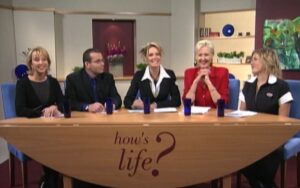
The Season of Life for Generation Xers like Dawson was now changing from Adulthood to Mid-Life. Any number of psychologists including Jean Piaget, Eric Erikson, and Jordan Peterson himself have explained very well what it’s like to make this change. Erikson calls the mid-adult crisis Generativity vs. Self Absorption: Looking beyond the self and expressing concern about the world. Generating children and grandchildren. Citzenship verses withdrawal.
Everyone in that panel (image, left) would soon age-up and need to find a new role suitable to their new age cohort to make way for the new Millennial adults taking their place. According to Strauss and Howe’s model in The Fourth Turning (1997) the Xers grew up underprotected children, came of age as alienated young adults, and now (2010s) had to “mellow into pragmatic midlife leaders during a Crisis.” They couldn’t be pretty young things now and wouldn’t long have faces fit for this kind of television.
Some of the How’s Life? people found that mellower role on radio. Marcus Lush and Kerre Woodham moved to radio Newstalk ZB and so did the hosts of the show that aired earlier in the morning on TVNZ, Breakfast: Mike Hosking and Kate Hawkesby. Rankin moved to politics, Henry and Paul moved behind the camera. Robyn Malcolm dramatically shifted from Shortland Street adult to Outrageous Fortune mid-life matriarch when the later show aired in 2005. Charlotte Dawson stands out as the Xer who refused to obey the road rules of the biological clock.
I next met Dawson in 2012 when she was hosting Fashion Week in 2012. She presented as thin and frail yet dressed up in revealing and flashy clothing that only a younger woman could be flattered by. We, the fit-out crew, were asked to sit down so she could come out to the stage and get some pre-arranged cheers and applause to, I guess, lift her mood ahead of the big show.
Just weeks before this, Dawson had attempted suicide following a Social Media war between herself and a mob of hateful bullies. It was a case of the old Friedrich Nietzsche quote “When you stare into the abyss the abyss stares back into you.” Dawson would not, could not, disengage from her haters online. Instead she regularly re-posted abusive content with her own remarks, amplifying it. She seemed to think she could out-will or out-stare the force of nature that was the collective mob. My interpretation is that it was made up of Millennials whose cultural role was to bulldoze out of the way any remaining Generation Xers who would not hand over Adulthood willingly to the generation whose turn had now come. The Collective had no empathy, no conscience to appeal to or bargain with. The Charlotte Dawson persona wasn’t ever really a real girl but a brand given for a time, held in trust, and identity and dopamine allowance which now must be relinquished or things would get messy. “Shortly after 2am today Dawson posted on Twitter “Hope this ends the misery” and “You win x.” Ref. Charlotte Dawson hospitalised after troll war, NZ Herald (August 2012)
Having survived death and learned nothing, Dawson was on TV the very next day for another round via 60 Minutes (Australia.) Then, on her way to host Fashion Week in Auckland. Then, publishing the book Charlotte’s Secrets. Ref. Charlotte Dawson talks to 60 Minutes (Stuff, August 2012)
Part of the purchase that the Millennial Moving Company had on Dawson was that she herself been part of the Great New Zealand Clobbering Machine of which she was now on the receiving end. Her new victimhood and Anti-Bullying Ambassador persona was at odds with her aggressive television persona and Simon Cowell-like harsh critic toward younger up-coming artists on the Australia’s Next Top Model TV show. Part of the grip Dawson wouldn’t release was that this adopted child had quit New Zealand and school at 16 to model in Europe, New York, and Australia and had been Charlotte Dawson Inc. for 30 distracting years. To now turn around and be someone else would involve going back in time to 1982 to solve a rejected-identity existential crisis. Dawson evidently preferred a Social Media firing squad rather than revisiting the terror of her abandoned childhood that she had prematurely exchanged for adulthood in her mid-teens.
Next, in January 2014, Dawson stirred up yet more negative attention upon herself by counter-rejecting New Zealand itself. Fellow GenXer, Marc Ellis, did something very similar to this himself in 2023. Having just invested in New Zealand rugby saying “I am seriously enthused about reconnecting with the community…Don’t forget your roots lad and don’t be afraid to give back.” Within weeks Ellis was quitting the country saying “I certainly think New Zealand’s finest days are behind it. We’re not at our peak. You don’t feel the same vibe or energy any more…New Zealand feels as if it is being pulled apart at the seams. I thought we were egalitarian and unified but some people who feel slightly disenfranchised use that to exacerbate rifts for political reasons.” Ref. NZ Herald (2023)
Dawson’s words were in the context of the then 17-yo Ella Yelich-O’Connor (Lorde) who had a hit song at the time: “Unless you’re very mediocre you need to get out of there – you just have to if you want to keep succeeding otherwise it’ll just crush your spirit…The people of New Zealand are proud…the media are going to give her a very hard time and my advice is she’s going to have to leave New Zealand.” Dawson must have recognised, at least subconsciously, that this was one of the new Adults that was taking the place she was being forced to vacate. Again, Dawson was making a lightning rod for acrimony toward herself and she was told vigorously, once again, to go hang herself. Ref. Charlotte Dawson tells Lorde: ‘Leave NZ’, NZ Herald, Facebook (Jan 2014)
This time, she did.
It wasn’t just depression that claimed Charlotte
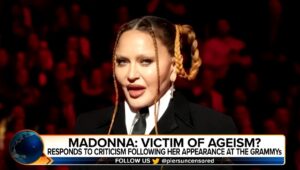
New Zealand responded to the climax of the Charlotte Dawson saga by trying very hard not to learn from it and to put the clear details leading up to it out of mind. Dawson became a “princess” cannonised the same way degenerate sex tourist Grace Millane also was after her own death in 2018. An opportunity to process in a healthy way what we had just done as a culture was firmly rejected even though it is of grave concern to everyone to figure out how to deal with issues like online abuse and growing older. Instead, the potential for growth was put into abeyance.
Two of media women of similar vintage to Dawson stepped up to be thought leaders: Michele A’Court and Deborah Hill Cone. As usual, A’Court sided with the establishment in snuffing out a deeper understanding of the earthquake that was rippling through our social fabric. She wrote that thinking about it was “speculation” and we must not do that. And, that the sequence of events and the climactic death was as random as having an egg thrown at you from a car for no reason on a fine day. Ref. Michele A’Court on Charlotte Dawson, Stuff (2014)
The other woman was Deborah Hill Cone who had been involved in the show Breakfast during the same time as How’s Life at TVNZ. Deborah referenced experts who observed that Mid-Lifers who cannot shift from spot-light to a supporting role may ape the behaviours, clothing and attitudes of the young, trying to preserve their sexual appeal. They may opt for plastic surgery as Dawson did and as Madonna (image left) certainly did. Socially, they become more self-absorbed and insensitive, demanding to remain the center of attention as Dawson and Madonna certainly did. Deborah really got it but it was Michelle who had her finger on the pulse of what the Clobbering Machine wanted. To sweep under the carpet, to forget, to act like none of this ever happened. Deborah was crucified for writing what she did. I highly recommend it. Ref. Deborah Hill Cone: It wasn’t just depression that claimed Charlotte, Herald (2014)
Imagine a concert pianist who has spent 30 years perfecting her craft to an international level, who suddenly finds out she has MS or Parkinson’s. Over the space of a few years, she loses function in her fingers to the point where she can no longer play. Do you think that might be a reason for depression? If it is, would you consider it shallow? Would it be shallow if she committed suicide after being publicly teased/bullied for this? Even though there would be an awful lot more to her than “just” piano playing. Charlotte’s instrument in this analogy was her adult female fertility.
At the high end of the market, modeling and presenting, being what Dawson was is a high form of art too. But when your piano deteriorates you can’t really get a new one. For example, 40% of women grow facial hair in a follicle thickness and length comparable with hairs men grow. Not the same number of hairs, clearly, but facial hair, nonetheless. Now, walk down the street and see if 40% of the women you see have facial hair. My guess is, you’d be hard pressed to find 1%. Why? Because we’ve been socially conditioned to think it’s unacceptable. A trait that 2 out of 5 women have.
That personal grooming goes way beyond hygiene and deeply into the appearance women want to present. For what reason do women wear make-up? Why is make-up a multi-billion-dollar industry? Because of culture and social pressure. And don’t tell me it’s because you just like the way you look and feel in make-up (if you’re a wearer) because that’s bullshit. The underlying reason for “feeling good” is because of the perceived increase in social approval you get for conforming to a more stereotyped version of your gender.
OK, so now imagine you have shaped yourself a successful career based on perfecting the stereotype of your gender. Models do this. And to a point, so do actresses, make-up artists, hairdressers… though they more perpetuate the stereotype. Charlotte had built a career and a brand out of showcasing herself as an ideal in physical femininity. It’s what she knew and what she had worked for her whole life.
Problem with this, is that part of the ideal in physical femininity is youth and fertility. Youth and fertility are not going to stick around forever. Imagine then, that you’d worked tirelessly for 30 years on your career (whatever that may be, whatever your dream is) and despite all your best efforts, you became obsolete in your field? Would that not be more than just a little depressing? Maybe not suicide-worthy, I’ll grant you, there would need to be other factors on top of that to push a person over the edge… maybe extreme bullying or something… Charlotte was a product of her culture. She worked hard for her career and for that culture; She was one of its gatekeepers in Australia and New Zealand.
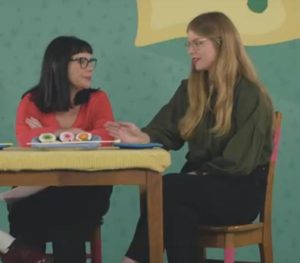 The challenge I have for any woman who thinks she’s not a product of the beauty culture is this: For 6 weeks, stop wearing a bra. Stop shaving your legs, and stop shaving your arm pits. Leave your bikini line completely alone. Stop pulling those stray hairs from your chin. Stop wearing make-up. Start dressing to the weather (if it’s hot, you shouldn’t wear trousers or long skirts to hide your hairy legs – that’s cheating). Make sure you go swimming in a public place a couple of times in weeks 5 and 6. If you can do all that, you’re a way stronger and more secure person than anyone that I have ever met!
The challenge I have for any woman who thinks she’s not a product of the beauty culture is this: For 6 weeks, stop wearing a bra. Stop shaving your legs, and stop shaving your arm pits. Leave your bikini line completely alone. Stop pulling those stray hairs from your chin. Stop wearing make-up. Start dressing to the weather (if it’s hot, you shouldn’t wear trousers or long skirts to hide your hairy legs – that’s cheating). Make sure you go swimming in a public place a couple of times in weeks 5 and 6. If you can do all that, you’re a way stronger and more secure person than anyone that I have ever met!
New Zealand passed up another essential moral lesson by ignoring these key events of its history. Adults are great and essential but we also need our Mid-Lifers and Elders. Dawson could have joined the ranks of the wise women Deborah Hill Cone described as ” subversive, powerful, batty old broads.” We don’t hear from Deborah any more. Michele A’Court and her flying egg ethic has prevailed (ref. The Spinoff and Radio New Zealand) as the voice adult women have to listen to. We are in trouble.
4 thoughts on "2014: Death of Charlotte Dawson"
Leave a Reply
 Like Comment Share
Like Comment Share






An insightful and sad comment on our society.
Thanks. Things will swing back eventually and we’ll then wonder at these fake plastic enhanced people and their shallow priorities
I, alas, only read the 1st half. However your reference to Hayley Holt, and her profound interview with Jordan Peterson, has often danced through my mind. I was delighted that she got after motherhood with such urgency. She will be a happy ole grandma in the years to come. I feel sad for women of the last 40 years who have been sold a recipe for disaster.
Was impressed at the time how Deborah Hill laid it all out. But, no, they wanted their disaster.